January 11, 2025
Why I Started a Shell Company
The sketchiest way to transfer ownership of a PayPal account.
I formed an LLC in Wyoming to abuse a legal loophole I discovered to solve a significant financial problem I was facing.
I'm talking about a legal entity with no active business operations or significant assets formed to do something potentially nefarious.
Here's why I started a shell company and why you might want to start one, too! Plus, you'll get a head start figuring out other loopholes to solve your problems.
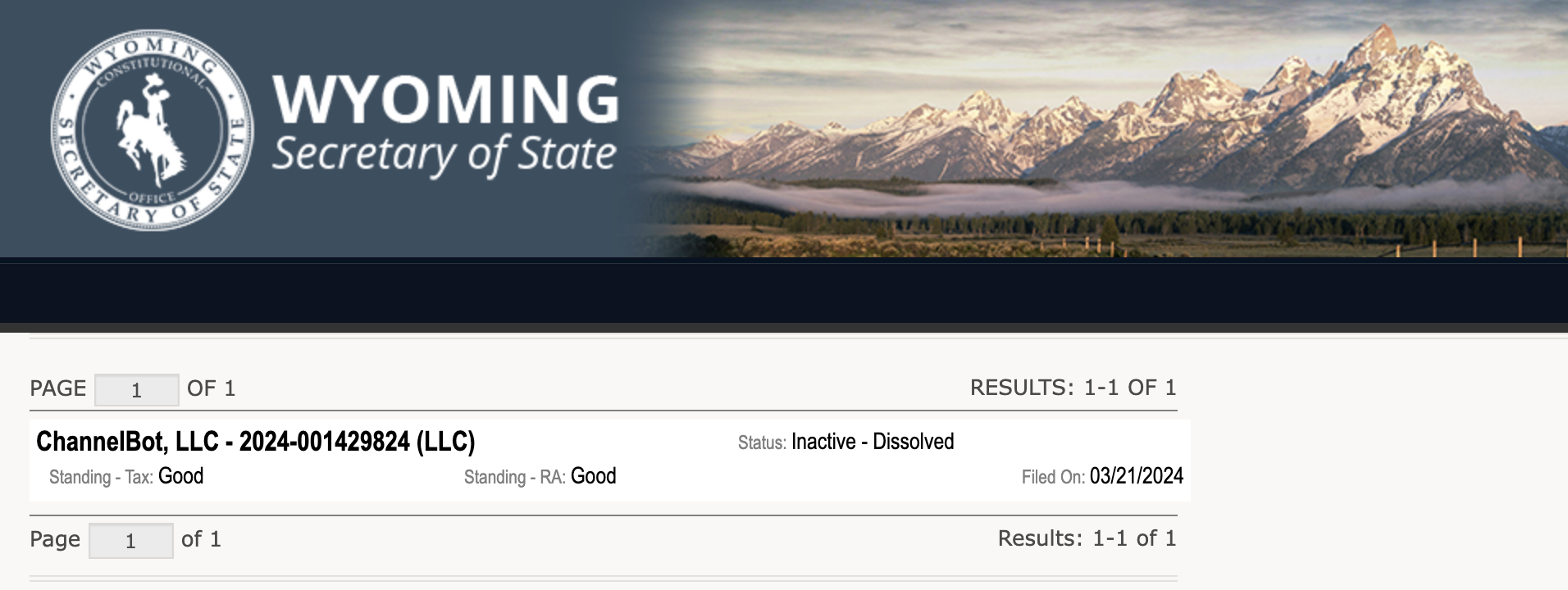
THIS IS NOT LEGAL ADVICE. I'M NOT RESPONSIBLE FOR ANY TROUBLE YOU GET YOURSELF INTO.
Birthday
I couldn't wait for my 18th birthday. Not because I was excited for celebrations or because I would finally be an adult. Well, maybe a little.
I was excited to dial up PayPal Customer Service, wait on hold for 10 minutes, and transfer the PayPal account I used for my businesses from being under my dad's into my name.
One problem, though.

“Sorry, we can't transfer ownership of accounts.”
“Why not? I'm an adult, and the account owner wants to transfer the account to me!”
“That's not something we even have the ability to do, it's against our policy. You'll have to create a new account under your name.”
“Can I speak with your mana—”
Well, the rest of that is irrelevant. Totally didn't call them 3 times.
PayPal's policy was a huge problem. I'll need to explain more about my business for it to make sense.
Making Money as a Kid
You can't sign up for most financial-related payment processors in your name as a minor. PayPal is incredibly strict about this.
When I turned 14, my first Discord bot, ChannelBot, outgrew free hosting from Glitch.com.

I needed to find some way to fund it, so I turned to a subscription model. To make money legally, my dad created a PayPal Business account for my business, which he gave me access to.
PayPal has an awesome recurring payments API that makes it super easy to set up recurring subscriptions linked to your account. More and more people subscribed, and this would become a significant problem.
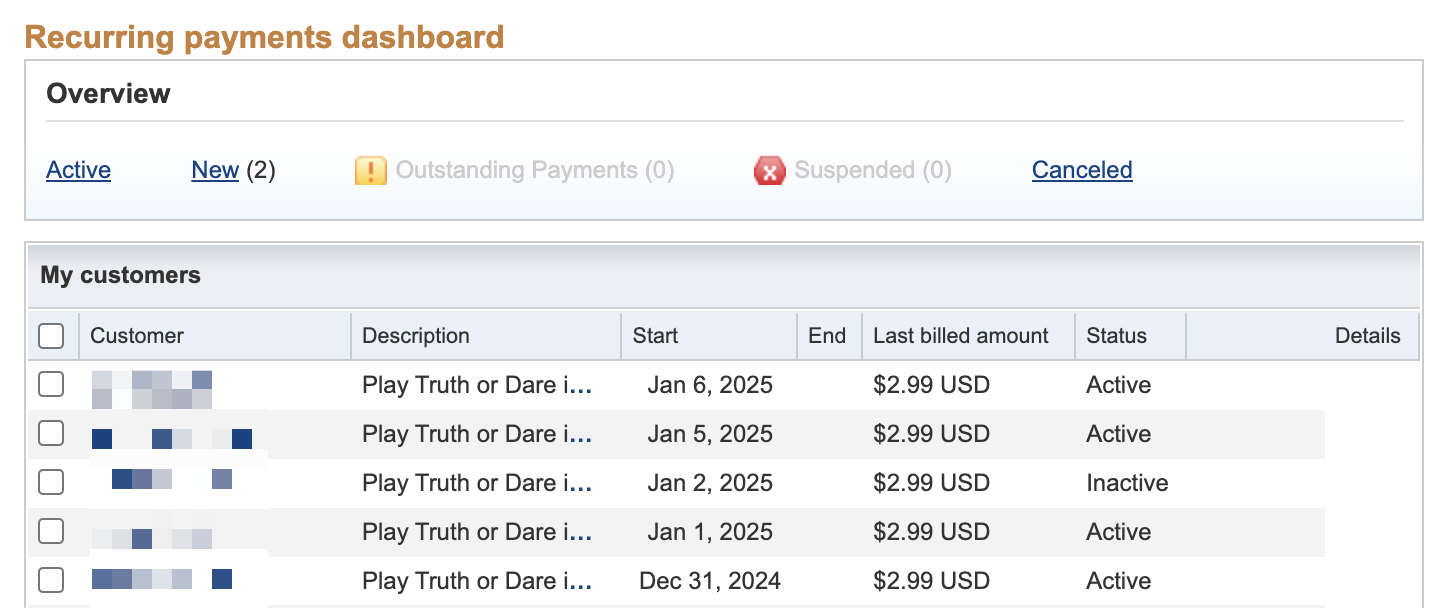
There are two reasons why:
- Once you make a certain amount of money, you suddenly become liable for taxes associated with that money. Things get complicated quickly when someone else's name is on that money.
- If subscriptions are linked to an account, I couldn't create a new account without losing the revenue I'd spent years building up.
PayPal needed to transfer the account to me, or I'd potentially lose these projects and the funding I'd spent years building.
So, I practically couldn't take PayPal's 'no' for an answer. Instead, I'd spend hours searching for some legal loophole to get around this.
The Loophole
PayPal's policy made sense. As an individual, you can't legally sell your business because you can't legally sell yourself. Sure, you can sell your business assets, but your payment processors relate to you and aren't an asset.
Even though my dad wasn't selling my business to me, there was no way he could legally transfer it to me as a sole proprietorship. However, I realized something:
You can change the type of business you are in PayPal's settings. All you need to do is to form a legal entity, and you would be able to transfer ownership of that entity.
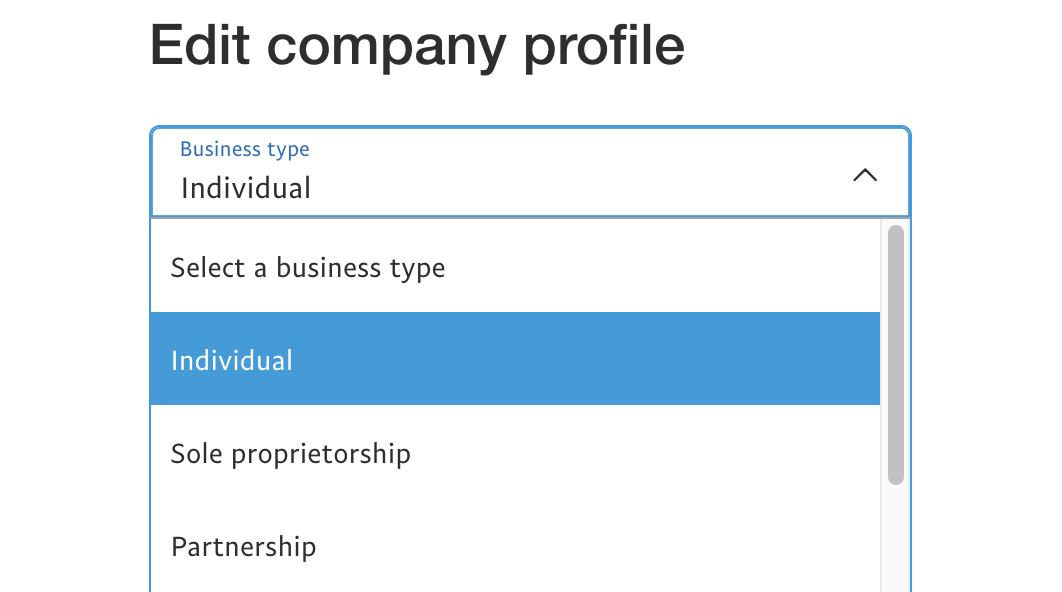
The Plan
- Have my dad form some legal entity with more than two owners. In this case, an LLC.
- Change the business type on PayPal's portal to an LLC and provide documentation that this was the case.
- Sign Articles of Organization with my dad, having us both as owners of the company.
- Have my dad legally resign from the company and promote me as the owner and CEO.
- Change the owner's name in the PayPal account by providing this documentation.
- Transfer the LLC's assets to me, changing the PayPal account back to an individual, with me as the owner.
- Dissolve the LLC.
Easy enough, right?
Forming the LLC
Forming an LLC seems complicated. It's not too bad if the stakes aren't that high.
I needed to find an LLC type that satisfied these conditions:
- Ownership must be transferrable
- Cheap to form and dissolve
- Minimal bureaucracy to form so things don't get complex
- No tax repercussions: I don't want to deal with problems from a temporary entity
- It should allow me to be as anonymous as possible. All LLC formation documents are super public; ideally, my address, phone records, and other sensitive information aren't on the Internet.
- Minimal reporting. Ideally, I don't have to tell the government too much about my actions, so they don't get suspicious. I don't want to have to file any Articles of Organization.
There are a few popular options:
- Delaware: Used for most startups, incredibly quick at handling legal cases, pretty anonymous, and not that cheap.
- California: California is the most legal way for me to start; however, it has a lot of reporting requirements and a hefty $800/yr cost.
- Wyoming: Incredibly cheap: only $60, anonymous, and low reporting. Perfect!
Stripe offers LLC formation in Deleware for a $500 upfront fee, handling all the legal paperwork for you. We can do better than that, though.
Registered Agents
Introducing sketchy registered agents! Wyoming was the obvious choice here. The anonymity and price were unmatched by any other state. However, you must have a Wyoming registered agent form the business and handle communication with the state. This is required by law.
Registered Agent: A person or entity legally appointed to receive and forward legal, tax, and government documents on behalf of a business.
Don't fret. Plenty of sketchy online registered agents charge incredibly low fees for the first year, then bump them up in subsequent years. However, this shouldn't be a problem as we will dissolve the entity.

I found one for just $25 if you decline all their upsells. “No, I don't want a domain, web hosting, mail forwarding, or other stuff for my business. It's fine; I can figure out how to file the documents myself. Five minutes to file them isn't worth paying $50 over. I want this to be as sketchy as possible.”
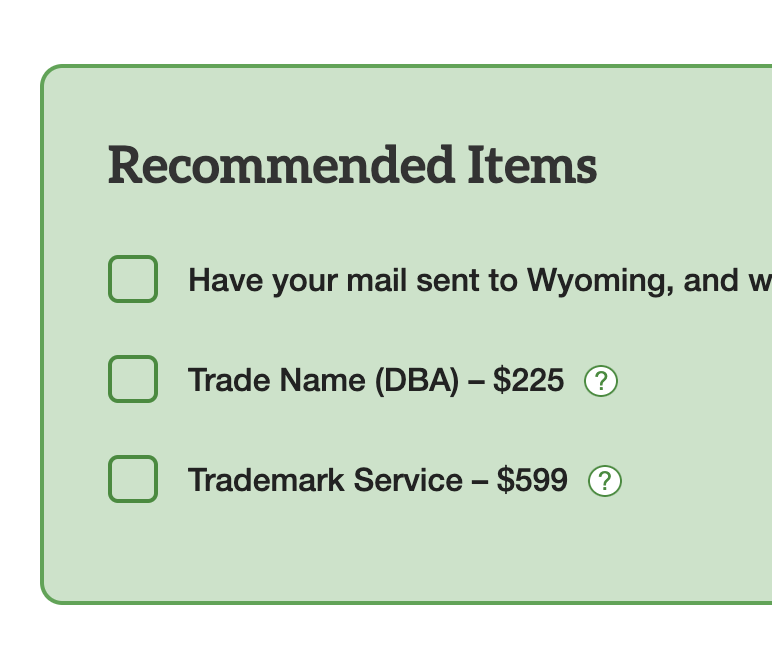
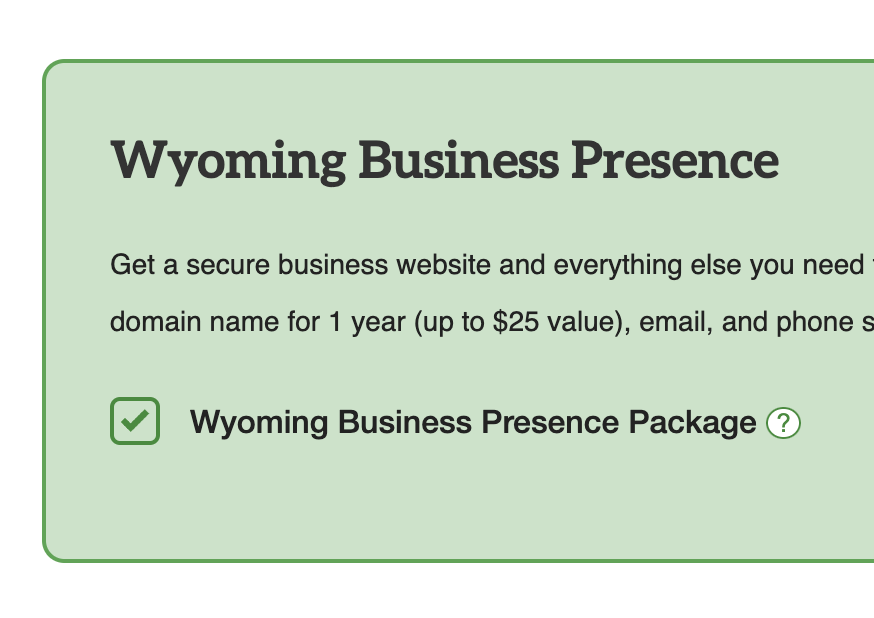
Filing Formation Documents
I filed the initial document on the Secretary of State's website and immediately became the CEO of my own shell company. Not too difficult at all.

The Transfer
Articles of Organization
I immediately drafted some simple Articles of Organization from a template I found online. This never had to be filed with anyone, but legally and technically, it had to exist. It just defines who the owners are, shares, and more in case of legal disputes.
Luckily, in Wyoming, you don't have to file any of this, so making changes wouldn't be complicated.
Changing Account Type
I went into PayPal settings and changed the account to an LLC.
They requested the documentation that I'd formed the LLC, so I provided the Articles of Organization and the initial filing document.
And boom, the PayPal account now belonged to an entity.

Ownership Transfer
Next, I drafted a 'legal document' for my dad to sign, stating that he'd be exiting the company and transferring all of his shares and power to me to be the new owner.
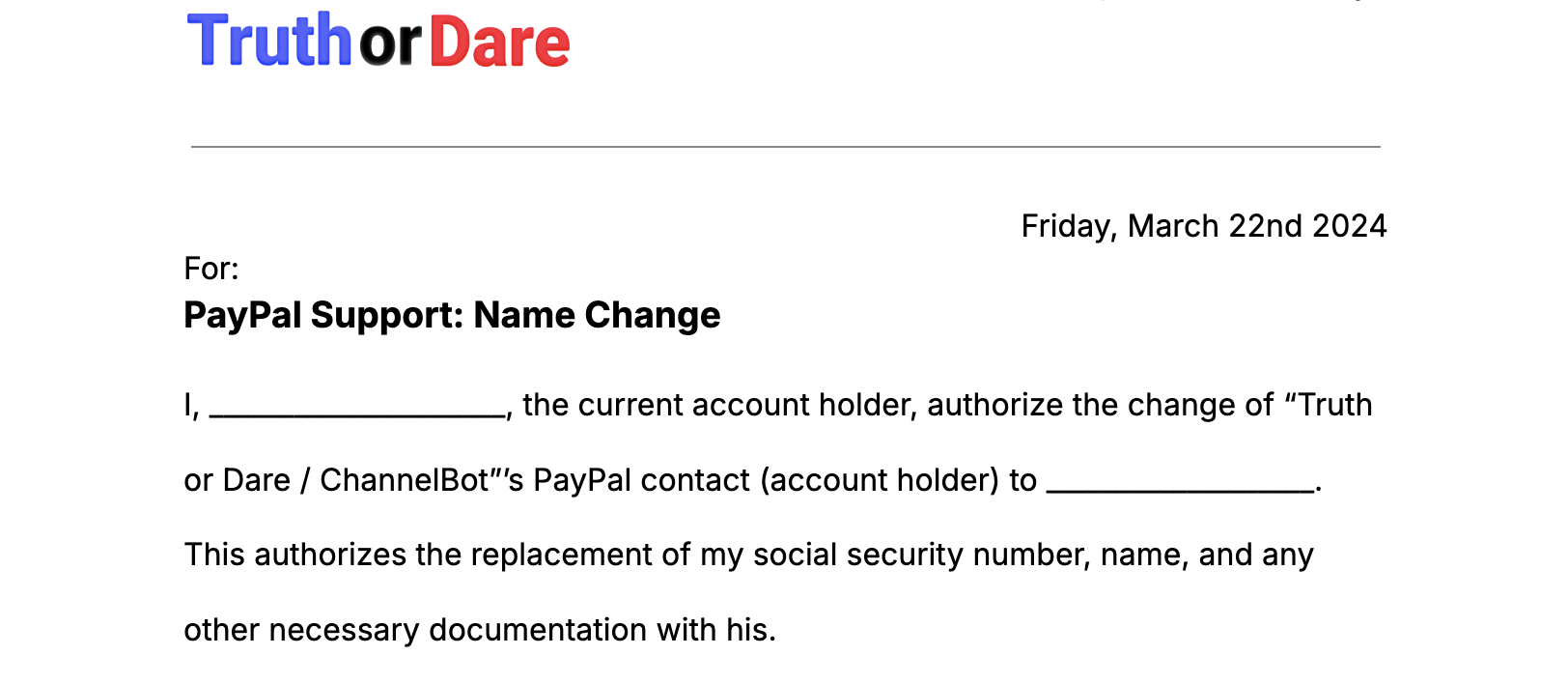
I called PayPal, requesting the transfer.
“Hi, I'd like to transfer my company's PayPal account to a new owner!”
“Sure, I've sent you a link to upload the ownership transfer document. Upload it there, and we'll get back to you in a few days.”
I provided the documents they requested. Lo and behold, the account was finally in my name in a few days.
I then converted my account back to an individual, and I was done.

Dissolution
The final step was dissolving the LLC, so I didn't have to worry about it. This costs about $80 in Wyoming, not too bad.
I filed the Articles of Dissolution by mail, providing a Money Order. A week later, it was gone.
Result
The subscriptions I'd spent years building were now entirely in my name. The total price tag? Only $209, with no lawyer is needed!
Stuff you don't think is possible truly is. Things might be a little complicated along the way, but if it's necessary, it's entirely possible.
Other discoveries
Why not keep the LLC? They can provide a lot of value, and maintaining a Wyoming LLC is not too expensive.
Not many people know this, but even if you form an LLC in another state, California law states that if you “do business in California” (which you probably do if you're from there), you legally have to form an entity here. If I used the LLC for actual business or made any money, California would probably find out and stamp me with the $800 fee plus potential additional fines. This is called a “foreign entity,” by the way.
Join Mailing List
I'll email you when I write a new post.